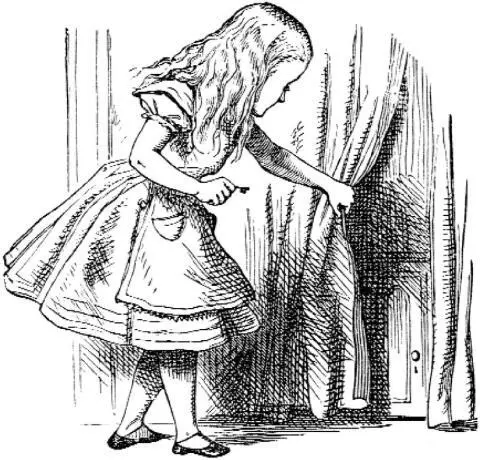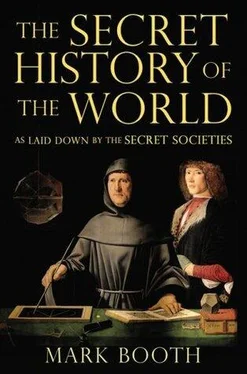This is the romance and excitement of philosophy. In a mind-before-matter universe there is more than romance and excitement in all thinking — there is magic too. It is not just what I do or say but what I think that affects my fellow humans and the whole course of history.
PLATO SAID THAT ALL PHILOSOPHY BEGINS with wonder.
Modern science is killing off wonder, by telling us that we know it all. Modern science is killing off philosophy, by encouraging us not to ask the big Why questions. These questions are strictly meaningless, they say. Just get on with it.
Today’s scientists try to insist that theirs is the only way to interpret the basic conditions of human existence. They like to dwell on what they know. In their view, the known is like a vast continent occupying nearly everything there is.
The men and women who have been described making history in this book have preferred to dwell on what they don’t know . In their view, the known is a tiny island floating on a vast and very strange sea.
Let us sow the seeds of doubt. Let us take Francis Bacon’s advice and refrain from rushing to impose a pattern on the world. Let us wait with Keats at our shoulder for a deeper pattern to emerge.
Science is not certain. It is a myth like any other, representing what people in the deepest parts of themselves want to believe.
Rudolf Steiner once said that people who don’t have the courage to be cruel often develop cruel beliefs. To propose that we don’t live in a reciprocal universe is needlessly cruel.
If we accept these cruel views we are allowing the say-so of experts in their own field to take precedence over our own personal experience. We are also denying things that Shakespeare, Cervantes and Dostoyevsky are telling us are true.
The aim of this book, therefore, has been to suggest that if we take a fresh look at the basic conditions of our existence, they may perhaps be seen in a radically new way. In fact, they may be seen in a way that is nearly completely the opposite of what we have been brought up to believe . This is what philosophy does, if it is done well.
The remains of an ancient wisdom lie all around us in the names of the days of the week and the months of the year, in the arrangement of the pips in an apple and in the strangeness of mistletoe, in music, in the stories we tell our children and in the design of many public buildings and statues and in our greatest art and literature.
If we can’t see this ancient wisdom, it is because we have been conditioned not to. We have been bewitched by materialism.
Science sees idealism as having dominated history up until the seventeenth century when the process of discrediting it began. Science assumes materialism will remain the dominant philosophy until the end of time. In the view of the secret societies, materialism will come to be seen as a mere blip.
THE TEACHINGS OF THE SECRET SOCIETIES have here been pulled out into the light of day for the first time. Readers may find them laughable — but at least on the basis of knowing what they really are. Other readers may sense something in them, even though they seem completely incompatible with the great scientific certainties of our age.
This has been a visionary history, history as it is retained in the human psyche, a night history preserved by adepts able to slip from the material dimension into another one. It might seem incompatible with the history you have been brought up to believe in, but maybe it is true in other dimensions?
Perhaps we should end by considering the musings of a great scientist? The physicist Niels Bohr said, ‘The opposite of a correct statement is a false statement, but the opposite of a profound truth may well be another profound truth.’
We have seen that if we try to peer back into the past beyond 11,451 BC there is very little evidence that science can properly count as hard. Vast, airy constructions of interpretation are balanced precariously on the tiniest bits of data. And, of course, the same is true if we try to gaze far into the future, beyond AD 11,451 . The truth is that we must use our imagination. When we travel any distance in either direction, when we leave the confines of this little island of matter, we cannot but enter the realms of imagination.
Of course materialists tend to distrust the imagination, associating it with fantasy and illusion.
But the secret societies hold an especially exalted view of the imagination. Each individual mind is a protrusion into the material world of one vast cosmic mind, and we must use the imagination to reach back into it and to engage with it.
It was using the imagination in this way that made Leonardo, Shakespeare and Mozart god-like.
Imagination is the key.

I thank Sarmaurin, Kszil and Aaron. I have been helped in the thinking and writing by Hannah Black, Jane Bradish Ellames, Jamie Buxton, Kevin Jackson, Kate Parkin and Paul Sidey. I am blessed to have such kindred spirits. I have the best agent and the best publisher. Jonny Geller is all deft action like a Zen archer and Anthony Cheetham is a unique combination of intellectual clout and commercial nous. As soon as I saw he was setting up a new publishing company, I knew I wanted to be published by it. I wish to thank Sue Freestone, my editor and Publisher of Quercus, and also the exceptionally able Charlotte Clerk. Thanks, too, to Patrick Carpenter, Nicolas Cheetham, Caroline Proud, Lucy Ramsey, Emma Ward, Andrew Sydenham, Doug Kean, Paul Abel and also to Elaine Willis for researching some really obscure pictures. Thank you, Betsy Robbins and Emma Parry for wonderful foreign rights sales, and I’m really glad to have the legendary Peter Mayer as my publisher in the States. Fred Gettings and Lorna Byrne Fitzgerald have, I know, been looking after me from afar. My mother, Cynthia, and Terry provided a peaceful haven when it was needed. My family have had to put up with a lot in the past eighteen months. My daughter Tabitha has also helped by drawing some brilliant illustrations in cases where permissions have been beyond reach, and my son Barnaby is always ready to lighten the mood with his subversive jokes. I thank my wife, Fiona, for all the love and dedication she has shown throughout the writing of this book — and this I now wish to repay.
Illustration Acknowledgements
The publishers would like to thank the following for source material and permission to reproduce copyright material:
Private Collection Pages 15, 21, 23, 34, 36, 37, 38, 43, 48, 49, 50, 52, 54, 57, 58, 59, 60, 61, 62, 65, 66, 67, 68, 69, 71, 72, 73, 74, 76, 79, 82, 84, 85, 86, 91, 92, 96, 97, 100, 101, 103, 104, 105, 111, 114, 116, 119, 124, 125, 126, 131, 133, 134, 136, 138, 140, 144, 145, 148, 155, 156, 158, 160, 162, 165, 166, 171, 172, 173, 179, 181, 184, 187, 188, 193, 195, 196, 197, 198, 199, 205, 207, 213, 216, 218, 220, 221, 222, 223, 225, 233, 235, 244, 249, 252, 253, 256, 261, 264, 267,275, 277, 278, 280, 282, 286, 288, 296, 297, 298, 308, 311, 312, 319, 320, 321, 322, 323, 324, 329, 335, 337, 338, 339, 342, 346, 347, 348, 352, 353, 356, 361, 366, 370, 372, 375, 377, 378, 385, 388, 394, 398, 403, 407
Bridgeman Art Library/Private Collection/Photo Boltin Picture Library © Succession Marcel Duchamp/ADAGP, Paris and DACS, London 2007 Page 24
Bridgeman Art Library/Private Collection Page 56
Bridgeman Art Library/Giraudon/Louvre, Paris Page 284
Tofoto/Fotomas Page 9, 27, 295
Topfoto/Charles Walker Page 55
Topfoto/Picturepoint Page 332
Le Petit Prince by Antoine de Saint-Exupéry, Published in English 1943 Page 141
Читать дальше













